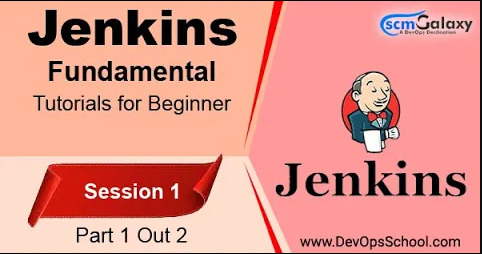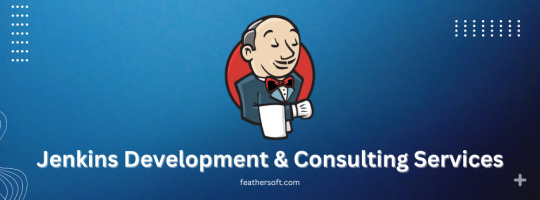#Jenkins DevOps
Explore tagged Tumblr posts
Text
In this episode, we explore DevOps tools Jenkins, the leading DevOps automation tool, and how Impressico Business Solutions helps businesses optimize CI/CD pipelines. Learn best practices, expert insights, and strategies to enhance your DevOps efficiency. Tune in to discover how to streamline software delivery with Jenkins!
#DevOps Tools Jenkins#DevOpsToolsJenkins#JenkinsCompany#Jenkins Company#Jenkins DevOps#JenkinsDevOps
0 notes
Text
Devops with Aws Training in KPHB
Career-Focused with Placement Assistance programme unill get an offer in hand
🎯 Want to become a DevOps Engineer? Join our DevOps with AWS training by Mr. Ram
🔗 Register now: https://shorturl.at/n8gI6 🗓️ 23rd April | ⏰ 7:30 PM IST
💻 Online & Offline | 💼 Real-time Projects 📲 More: https://linktr.ee/clickone2 #CareerGrowth #AWS #DevOps #NareshIT
0 notes
Text
DevOps with AWS Training Online Training

🚀 DevOps with AWS Training with Placement assistance Prrogramme
🧑🏫 Trainer: Mr. Ram 📅 Date: 23rd April 2025 🕢 Time: 7:30 PM IST 💻 Mode: Online & Classroom Training 📍 Location: KPHB (Beside Metro Station) 📜 Duration: 4 Months 💰 Fee: ₹21,000 (with videos), ₹16,000 (without videos) 🔗 Register Now: https://shorturl.at/n8gI6 📲 More Details: https://linktr.ee/clickone2
📌 What You'll Learn:
DevOps Fundamentals
AWS Integration
CI/CD Pipelines
Infrastructure as Code (IaC)
Real-world Projects
🎯 Ideal for aspiring DevOps Engineers and IT professionals aiming to upskill.
#DevOps #AWS #NareshIT #OnlineTraining #CareerGrowth
#devops#devopstools#cloudcomputing#awsdevops#cloudsolutions#cloudsecurity#ci/cd#jenkins#docker#k8s#Teraform
0 notes
Text

#PollTime
Which DevOps tool is a game changer?
A) Docker 🐳
B) Kubernetes 🚢
C) Jenkins 🏗️
D) Terraform 🌍
Comments your answer below👇
💻 Explore insights on the latest in #technology on our Blog Page 👉 https://simplelogic-it.com/blogs/
🚀 Ready for your next career move? Check out our #careers page for exciting opportunities 👉 https://simplelogic-it.com/careers/
#simplelogic#makingitsimple#itcompany#dropcomment#manageditservices#itmanagedservices#poll#polls#devops#docker#kubernetes#jenkins#terraform#itservices#itserviceprovider#managedservices#testyourknowledge#makeitsimple#simplelogicit
0 notes
Text
Streamline DevOps with GitLab CI/CD vs Jenkins
In DevOps, Continuous Integration and Continuous Deployment (CI/CD) are essential for automating workflows and delivering software quickly and reliably. While Jenkins has been a popular CI/CD tool, many teams are moving to GitLab CI/CD because of its easy integration, user-friendliness, and built-in security features. Let’s look at why GitLab CI/CD is preferred over Jenkins. 1️⃣ Built-in CI/CD…
0 notes
Text
Tip: Focus on What value you get once Cloud Solution is implemented for next business growth OR innovation.
Do you know, Techjour's Cloud Solution reduces business operating cost, gives security to data and flexibility to focus more on your business. It meets immediate on-demand business need, in fast moving digital world.

#devopsengineer#devopstools#devops#cloud solutions#cloud service provider#cloud services#google cloud#cloudcomputing#cloudmigration#cloudconsulting#kubernetes#ansible#jenkins github#startup#automation#technology#trendingnow#successful business#small business#digital business#docker#sme#entrepreneur#digital strategy
0 notes
Text
youtube
DevOps in 2025: Evolved or Obsolete? The Future of IT Practices!
1 note
·
View note
Text
Revolutionizing Software Development: Understanding the Phases, Lifecycle, and Tools of DevOps
DevOps refers to the combinations of Development and Operational Skills. Basically, to overcome the long, time-consuming process of traditional waterfall models, DevOps are preferred. Nowadays many companies are interested to employ engineers who are skilled at DevOps.It integrates development and operations i.e. it takes a combination of software developers and IT sector.

Phases of DevOps
DevOps engineering consists of three phases:
Automated testing
Integration
Delivery
DevOps lifecycle
DevOps mainly focuses on planning, coding, building and testing as the development part. Added is the operational part that includes releasing, deployment, operation, and monitoring. The development and operational part make up the life cycle.
DevOps team & work style
In business enterprises, DevOps engineers create and deliver software. The main aim of this team, in an enterprise environment, is to develop a quality product without the traditional time consumed.
DevOps employs an automated architecture which comes with a set of rules, a person who has worked as a front-runner for the organization, will lead the team based on the company’s beliefs and values.
A Senior DevOps engineer is expected the following skills
Software testing: The responsibility increases along with coding new requirements to test, deploy and monitor the entire process as well.
Experience assurance: The person follows the customer’s idea to develop the end product.
Security engineer: During the development phase the security engineering tools to be used in the security requirements.
On-time deployment: The engineer should ensure that the product is compatible and running at the client’s end.
Performance engineer: Ensures that the product functions properly.
Release engineer: The role of the release engineer is to address the management and coordination of the product from development through production. Release ensures the coordination, integration, flow of development, testing, and deployment to support continuous delivery and maintenance of the end-end applications.
System admin: Traditionally system admin focuses only on the server running. But DevOps handles the open source pros, passionate towards technology, and hands-on with development platforms and tools. They maintain the networks, servers database and even support.
Usage of the DevOps tools
The Git tool is a version control system tool used to develop the source code by developers and send it to the Git repository and we have to edit the code in the repository.
Jenkins is a powerful application tool that allows the code from the repository using the git plugin and builds it using tools like Ant or Maven.
Selenium is an open-source automation tool. The Selenium tool performs regression and functional testing. Selenium is used for testing the code from Jenkins.
Puppet is a configuration management and deploys testing environment.
Once the code is tested, Jenkins sends it for deployment on the production server.
Then the completion of Jenkins it goes to be monitored by tools Nagios.
After the monitoring process, Docker containers provide a testing environment to test the built features.
Basic technical knowledge for DevOps recruiters:
The DevOps recruiters should follow basic methodologies such as agile, continuous delivery, continuous integration, microservices, test-driven development, and infrastructure as a code.
They must know the basic scripting languages such as Bash, Python, Ruby, Perl, and Php.
The recruiters must know the infrastructure automation codes such as Puppet, chef, Ansible, Salt, Terraform, Cloud formation, and Source code management such as Git, Mercurial, and Subversion.
The developers should study cloud services such as AWS, Azure, Google Cloud, and open stack.
Another skill is orchestration. In programming, to manage the interconnections and interactions among the private and public clouds.
Next one is containers, a method of OS virtualization that allows you to run an application and its dependents in a resource-isolated process, it includes LXD, Docker.
The recruiters should be able to manage multiple projects, simultaneously.
They must know the usage of tools for continuous integration and delivery. Such as Cruise control, Jenkins, Bamboo, Travis CI, GOCD, Team Foundation server, Team City, Circle CI
Testing tools such as Test Complete, Testing Whiz, Serverspec, Testinfra, In Spec, Customer Driven Contracts. Recruiters must know the monitoring tools such as Prometheus, Nagios, Icinga, Zabbix, Splunk, ELK Stack, collected, CloudWatch, Open Zipkin.
In conclusion, DevOps combines development and operational skills to streamline the software development process, with a focus on planning, coding, building, testing, releasing, deploying, operating, and monitoring. The DevOps team is responsible for creating and delivering quality products in an enterprise environment using automated architecture and a set of tools such as Git, Jenkins, Selenium, Puppet, Nagios, and Docker. DevOps recruiters should have basic technical knowledge of agile, continuous delivery, scripting languages, infrastructure automation, cloud services, orchestration, containers, and project management, as well as proficiency in various tools for continuous integration and delivery, testing, and monitoring.
#DevOps#SoftwareDevelopment#Automation#ContinuousIntegration#ContinuousDelivery#DevOpsTools#AgileMethodology#Docker#Jenkins#Git#Selenium#Puppet#Nagios
0 notes
Text
Cypress with Jenkins CI/CD: A Robust Automation Framework
#Cypress#Jenkins#CICD#AutomationFramework#TestingTools#DevOps#SoftwareTesting#ContinuousIntegration#ContinuousDelivery#AutomationTesting#TestAutomation#CypressTesting
0 notes
Video
youtube
Complete Real-World DevOps Project | Deploy using K8S from Ansible | Rep...
#youtube#linux k8s git dockerfile DevOps Kubernetes Jenkins Docker Ansible CI_CD GitHub DockerHub Webhooks ReplicaSet NodePort Automation DevOpsPipel
0 notes
Text
Explore how Azure DevOps Jenkins can revolutionize your software development processes! Learn how combining these powerful tools can streamline Continuous Integration and Deployment. Discover how Impressico Business Solutions can help businesses enhance their development pipelines and ensure seamless collaboration and delivery.
0 notes
Text
Jenkins Fundamental Tutorials for Beginner | Session 1 | Part 1 Out 2

SCM Galaxy is a top-tier institute specializing in IT training, certifications, and consulting services. We provide training, certifications, support and consulting for DevOps, Big Data, Cloud, dataops, AiOps, MLOps, DevSecOps, GitOps, DataOps, ITOps, SysOps, SecOps, ModelOps, NoOps, FinOps, XOps, BizDevOps, CloudOps, SRE and PlatformOps. 🔔 Don't Miss Out! Hit Subscribe and Ring the Bell! 🔔 👉 Subscribe Now
youtube
0 notes
Text
Jenkins Development & Consulting Services | Automating Your Software Delivery Pipeline

In today’s fast-paced software development landscape, the ability to deliver high-quality applications quickly and efficiently is crucial. Continuous Integration and Continuous Delivery (CI/CD) have become standard practices for achieving this, and Jenkins, an open-source automation server, plays a pivotal role in streamlining these processes. For organizations looking to enhance their software delivery pipeline, partnering with Jenkins development and consulting experts can be the key to unlocking greater efficiency and faster time-to-market.
Why Jenkins?
Jenkins is widely recognized as a powerful tool for automating the software development process. It allows teams to continuously build, test, and deploy code, ensuring that software is always in a deployable state. With its extensive plugin ecosystem and strong community support, Jenkins can be customized to meet the unique needs of any development environment.
Key benefits of Jenkins include:
Automation: Jenkins automates repetitive tasks, such as code compilation, testing, and deployment, freeing up developers to focus on writing code and solving complex problems.
Continuous Integration & Continuous Delivery: Jenkins enables CI/CD practices by automatically integrating code changes and delivering updates to production, reducing the risk of errors and ensuring rapid delivery of features.
Extensibility: With over 1,500 plugins available, Jenkins can be integrated with a wide range of tools and technologies, from version control systems to cloud platforms, making it highly adaptable to different workflows.
Scalability: Jenkins can handle projects of any size, from small teams working on a single application to large enterprises managing hundreds of projects simultaneously.
The Role of Jenkins Developers
Jenkins developers are specialized professionals who understand how to configure, customize, and optimize Jenkins to meet the specific needs of your development environment. Their expertise ensures that Jenkins is not just a tool, but a seamless part of your software delivery pipeline.
Key responsibilities of Jenkins developers include:
Pipeline Development: Creating and managing Jenkins pipelines that automate the entire software delivery process, from code integration to deployment.
Plugin Management: Selecting, configuring, and maintaining the right plugins to extend Jenkins’ functionality and integrate it with other tools in your development ecosystem.
Security Configuration: Implementing security measures to protect your Jenkins environment, ensuring that only authorized users can access and modify the pipeline.
Performance Tuning: Optimizing Jenkins to handle large-scale projects and ensuring that builds and deployments are performed quickly and efficiently.
The Value of Jenkins Consulting Services
While Jenkins is a powerful tool, its complexity can be overwhelming for organizations that are new to CI/CD practices or lack in-house expertise. This is where Jenkins consulting services come into play. A consulting partner like Feathersoft Info Solution can provide the guidance and support needed to implement Jenkins effectively and align it with your business objectives.

Benefits of partnering with Jenkins consulting services include:
Customized Implementation: Consulting experts assess your current development processes and design a Jenkins implementation that fits your unique requirements, ensuring a smooth integration into your workflow.
Best Practices: Leverage industry best practices to optimize your Jenkins setup, ensuring that your CI/CD pipeline is efficient, reliable, and scalable.
Training and Support: Equip your team with the skills they need to manage Jenkins effectively through comprehensive training and ongoing support.
Continuous Improvement: Regular assessments and updates ensure that your Jenkins environment evolves with your business, adapting to new challenges and scaling as needed.
Conclusion
Jenkins has revolutionized the way software is developed and delivered, making it an essential tool for any organization looking to adopt CI/CD practices. However, to fully leverage its capabilities, it’s important to have skilled Jenkins developers and the strategic guidance of a consulting partner. Whether you’re just starting with Jenkins or looking to optimize your existing setup, partnering with experts like Feathersoft Info Solution can help you streamline your software delivery pipeline, improve efficiency, and accelerate time-to-market. With the right support, Jenkins can become a powerful asset in driving your business forward.
#Jenkins#DevOps#Automation#SoftwareDevelopment#ContinuousIntegration#ContinuousDelivery#JenkinsPipeline#TechConsulting
0 notes
Text





#TechKnowledge Have you heard of CI/CD in software development?
Swipe to discover what it is and decode this tech buzzword! 🚀
👉 Stay tuned for more simple and insightful tech tips by following us.
💻 Explore the latest in #technology on our Blog Page: https://simplelogic-it.com/blogs/
✨ Looking for your next career opportunity? Check out our #Careers page for exciting roles: https://simplelogic-it.com/careers/
#techterms#technologyterms#techcommunity#simplelogicit#makingitsimple#techinsight#techtalk#cicd#continuousintegration#continuousdeployment#test#merge#errors#jenkins#gitlabcicd#circleci#devops#knowledgeIispower#makeitsimple#simplelogic#didyouknow
0 notes
Text

Terraform Training Online | Terraform Training Ameerpet
VisualPath offers the Best Terraform Training Online conducted by real-time experts. Our Terraform Training Ameerpet Online available in Hyderabad and is provided to individuals globallyintheUSAUK,Canada,Dubai,andAustralia.
Contactusat+91-9989971070 VisitBlog:https://visualpathblogs.com/
whatsApp:https://www.whatsapp.com/catalog/917032290546/Visit: https://visualpath.in/terraform-online-training-in-hyderabad.html
#devops#aws#docker#ansible#jenkins#kubernetes#python#linux#cloudcomputing#github#devopsengineer#devopstraining#googlecloud#azure#microsoftazure#awscloud#metal#cloud#it#itsolutions
0 notes
Text
Gitlab has an approximately 30 million registered User, includes 1 million active licensed users. There are more than 3,300 Code contributors and team members in 60+ countries.
#gitlab#automation#technology#techjour#jenkins github#github#git#devops#saas development#aws cloud#microsoft azure#gcp cloud consulting services#gcp
0 notes